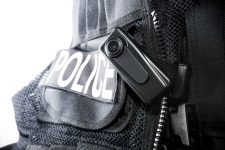Body Cams a Win for the Police and the Public

NSW Police officers are to be equipped with “body cams”, lightweight video cameras that are clipped to officers’ uniforms when they are dealing with the public. This new initiative was announced recently by the NSW Government, and is expected to roll out over the next two years at a cost of approximately $4 million.
The lightweight video cameras will be worn on police vests as part of the radio and are intended to hold both police officers and the public more accountable for their actions, providing evidence in cases against alleged offenders, and when police officers are accused of misconduct. Frontline police officers will be the first to be equipped with the new devices, which it’s hoped will reduce levels of crime, speed up the court process, and help with police training.
A useful deterrent
Trials of the body cams have already been conducted, and show that the act of wearing the cameras has had a positive effect on the level of frivolous reports and the behaviour of offenders and police.
Trials took place at the Public Order and Riot Squad, Brisbane Waters Local Area Command, the Northern Sector of the Police Transport Command, and the South West Metro Regional Enforcement Squad.
Knowing that they will be held accountable for their actions and that evidence exists which could be used in court has been shown to change the behaviour of offenders, particularly in domestic violence situations.
This technology has the potential to reduce the time spent in court and bring a swifter resolution for victims of crime, as defendants are believed to be less likely to argue or plead not guilty where clear evidence exists, and can be used in court.
Police held accountable
As well as reducing the time taken in the court process for victims of crime, the video cameras will also hold police accountable for their actions. With a recent spate of allegations of misconduct against police, it’s hoped that having their actions recorded and available to be used as evidence will discourage police from acting in an unlawful manner.
Preliminary trials have shown that police acted more professionally when they were wearing the devices than when they weren’t, especially when dealing with the public. In future, allegations of misconduct can be easily determined by reviewing evidence from the cameras to see how individual officers dealt with members of the public.
Training benefits
As well as being used as evidence in court, it is expected that the cameras will also be useful for police training. Having evidence of actual incidents will help with the evaluation of critical situations, and will provide feedback to officers to help them improve their manner of dealing with the public in the future.
Greater accountability may lead to a decrease in the amount of incidents of police misconduct and benefit the wider community, as well as safeguard individual police officers from fraudulent claims.
The announcement about the future use of this technology comes at a time when police are being given access to new technology across a range of different areas. In a bid to help with traffic-related crime, the government has also announced that it is accelerating the roll out of Automatic Number Plate Recognition technology.
This technology allows vehicle number plates to be scanned in quick succession and driver details to be brought up on police computer screens before the police interact with the driver. This widespread use of new technology means it looks likely that policing will change rapidly in the foreseeable future.
Receive all of our articles weekly
Author






